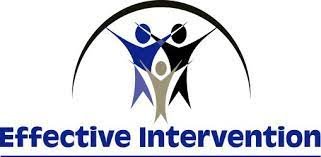Current Projects
When we start a new project, we generally prefer to design it as a randomised controlled trial. This permits us to measure outcomes rigorously, and truly learn whether we are serving our clients (children and their families) well enough, and at what cost. If we demonstrate success, we expand projects, but if we fail we go back to the drawing board.
-
ROPE
GIVING CHILDREN A CHANCE FOR EDUCATION IN ONE OF THE MOST DESTITUTE REGIONS OF THE WORLD
WIth support from the National Bureau of Economic Research, we completed a baseline survey of children's numeracy and literacy covering approximately 200 villages and 10,000 children in Guinea-Bissau. The results from this survey pointed out the stark reality that most children, even by the age of ten, were unable to add two single digits or read a simple word.
We have embarked on the ROPE trial to learn whether moderate retraining of teachers, combined with better school supervision and monitoring, is sufficient to significantly improve education outcomes. We have created 21 schools, trained teachers, and randomly allocated villages to intervention and control. We will use internationally comparable tests in order to compare outcomes of children in our schools to the controls who receive standard of care. We will also be able to compare how children in our schools fared compared to children in other nations, as well as determine the costs of any benefits.
-
SCORE
IMPROVING CHILDREN’S LITERACY AND NUMERACY IN GAMBIA
WIth the success of STRIPES in Telangana (formerly Andrha Pradesh), we have agreed with the Ministry of Education in Gambia to test whether a similar after school education program would be capable of substantially improving children's education outcomes. In 2015 we embarked on a three year after school program, where approximately 2,000 children, living in randomly selected villages, will receive an extra 2 hours of literacy and numeracy training after school. After three years we will use international tests (EGRA AND EGMA) to learn whether the project helped the children when compared to controls who received standard of care, and if so, how far up the international education ladder it was able to raise them as well as how much it cost. This project is in partnership with the London School of Hygiene and Tropical Medicine.
-
Madhya Pradesh
A PACKAGE OF EDUCATION AND HEALTH INTERVENTIONS FOR CHILDREN AND PREGNANT MOTHERS.
Our longer term goal is to build a package of interventions, which can be applied to many extremely poor regions, in order to help children better integrate in a world outside of poverty. Our Madhya Pradesh study is our second, integrated trial which will learn whether specific education and health measures can substantially reduce child deaths and raise children's learning. We will be randonly allocating approximately 200 villages to receive health or education interventions. The project is currently under design with the goal being to start interventions in 2018. This project is in partnership with the London School of Hygiene and Tropical Medicine and the NICE Foundation (Hyderabad). We are currently seeking a partner for our education work.
-
ASSP
PROVIDING 15,000 INDIAN CHILDREN A BETTER EDUCATION.
This project provides 2 hours daily after school numeracy and literacy training to children living in 464 villages of rural Telangana (formerly Andhra Pradesh). The trial is a continuation of STRIPES, which proved highly successful at improving children's education outcomes. We have worked closely with the International Education Agency in order to bring TIMMS and PIRLS testing on a regular basis, for the first time, to India. This will allow us to measure how far up the scale of international outcomes these children will be able to move over five years, and at what cost. This project is in partnership with the NAANDI Foundation, Hyderabad.
-
CHAMPION+
SERVING PREGNANT MOTHERS TO REDUCE NEWBORN CHILD DEATHS
This project provides community healthcare and education for pregnant women living in 464 villages of rural Telangana (formerly Andhra Pradesh). The trial is a continuation of the CHAMPION trial, which illustrated that this package of measures reduced neonatal child deaths by 25%. We plan on running this project for five years. This project is in partnership with the NICE Foundation, Hyderabad.
